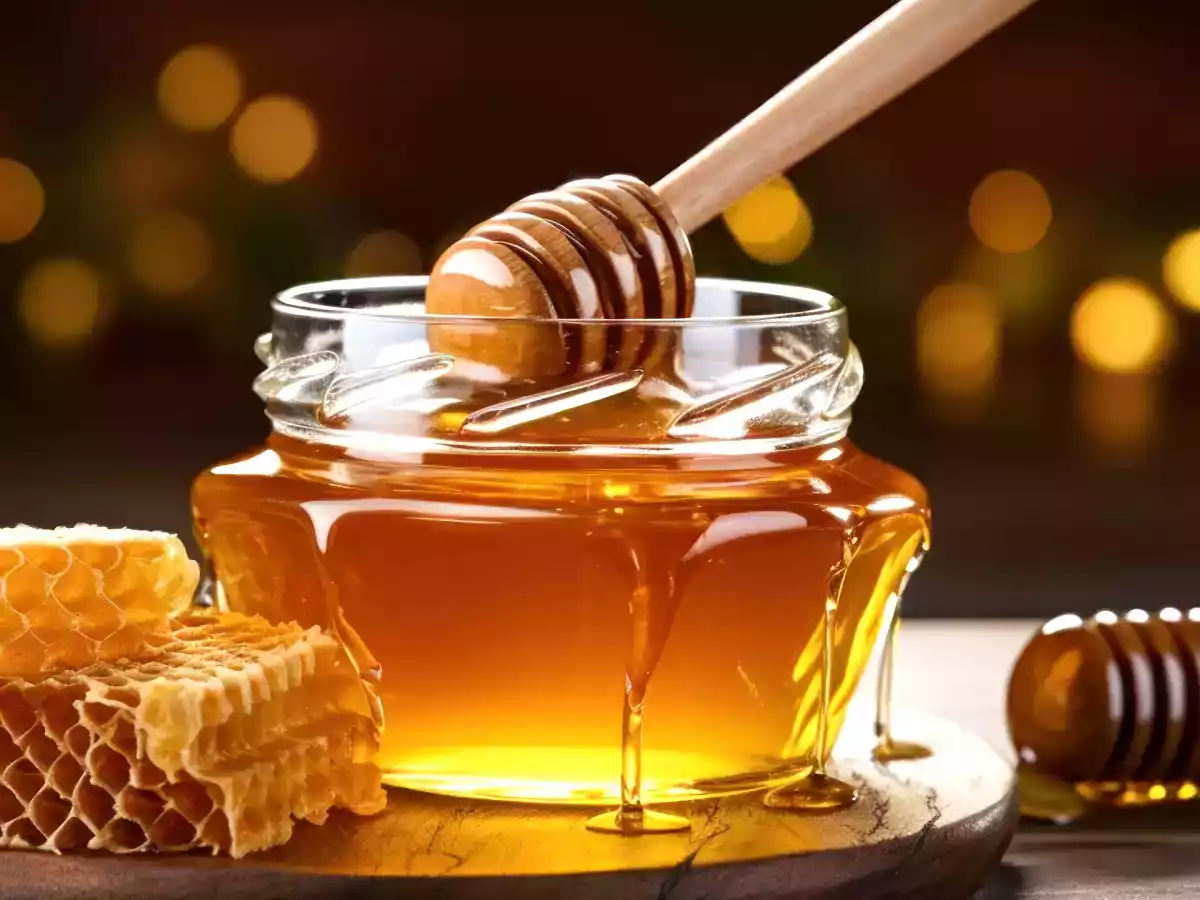5 things to known about honey

Who doesn't love honey, a true natural panacea for the body and spirit? Not only is it a delicious and versatile sweetener, but it is also a millennia-old food rich in beneficial properties and hidden surprises. From its antibacterial properties to its ability to preserve flavors and nutrients intact for centuries, honey is truly a gift from nature that deserves to be rediscovered.
Often considered a simple substitute for sugar, honey offers so much more: each teaspoon holds a unique combination of enzymes, minerals, vitamins, and antioxidants from the hard work of bees. But there is still so much more to know about this extraordinary nectar! Get ready to discover five surprising facts!
1. Never expires
Honey is a true miracle of nature! If stored well, it can last practically forever. It is as if time stands still inside it. Due to its special composition, honey is a hostile environment for bacteria. It is so old that archaeologists have found it still edible in the tombs of ancient Egyptians. This is all thanks to natural substances that protect it from mold and spoilage.
2. It is the only food produced by bees that we consume
Bees are true master bakers. Of all the things they produce, honey is their sweetest and tastiest specialty. To make it, worker bees fly from flower to flower collecting nectar. Back at the hive, they process it and turn it into the delicious honey we love. It's a superhero's job: to make a pound of honey, a bee must visit millions of flowers and make a journey that is almost twice as far around the world!
3. Has antibacterial and healing properties
Since time immemorial, honey has been considered a true panacea, a natural remedy for many ills. Its secret? The antibacterial and antimicrobial properties that make it a powerful ally against germs. It's all thanks to hydrogen peroxide, a natural substance formed when bee enzymes work on nectar. But the surprises don't end there: honey, especially Manuka honey, is a real panacea for wounds and burns. Because of its ability to inhibit bacteria and promote skin regeneration, it creates a perfect environment for healing.
4. Each type of honey has unique properties
Imagine tasting a rainbow of flavors: that's what happens when you taste different kinds of honey.
- Acacia honey: with its golden color and delicate flavor, it is like a ray of sunshine in your mouth.
- Chestnut honey: has a deep amber color and a strong taste, perfect for those who like strong flavors. But the diversity of honey goes beyond taste: each variety has unique properties.
- Eucalyptus honey: with its fresh, balsamic aroma, it is a real throat booster,
- Lime tree honey: with its sweet and floral notes, it envelops us in an embrace of serenity.
- Lavender honey: has calming and anti-inflammatory properties. Often used to soothe headaches or nervousness, it is also excellent in desserts.
- Orange honey: derived from orange blossoms, it has calming and antispasmodic properties. It is ideal for sweetening desserts and drinks.
It is known that the dark coloring of some honeys is related to a higher content of phenolic compounds, such as antioxidants. These substances, which are essential for our physiology, exert an effective protective action against cellular damage induced by free radicals.
5. Honey can be hallucinogenic
Hallucinogenic honey, also known as mad honey or "crazy honey," is produced by bees collecting nectar from certain rhododendron species, particularly Rhododendron ponticum. These plants contain a neurotoxin, called grayanotoxin, which is transferred into honey through the nectar collected by bees, making it unique for its psychotropic effects.
The main areas where this particular type of honey is produced are:
- Nepal: From the peaks of the Himalayas comes a honey that promises strong emotions. Nepal's giant bees, in fact, produce a nectar with psychoactive properties that has been sought after for centuries for its unique effects.
- Turkey: The hallucinogenic effects of honey are not limited to Nepal. Even in Turkey, where rhododendron ponticum grows, bees produce a honey with similar properties. The grayanotoxin present in the nectar of this plant gives this honey a particularly intense psychoactive power.
You might also be interested in:
 Daniele Mainieri
Daniele Mainieri

Comments